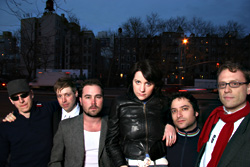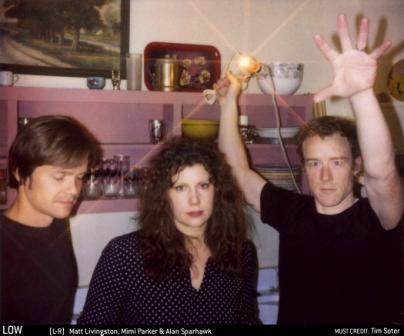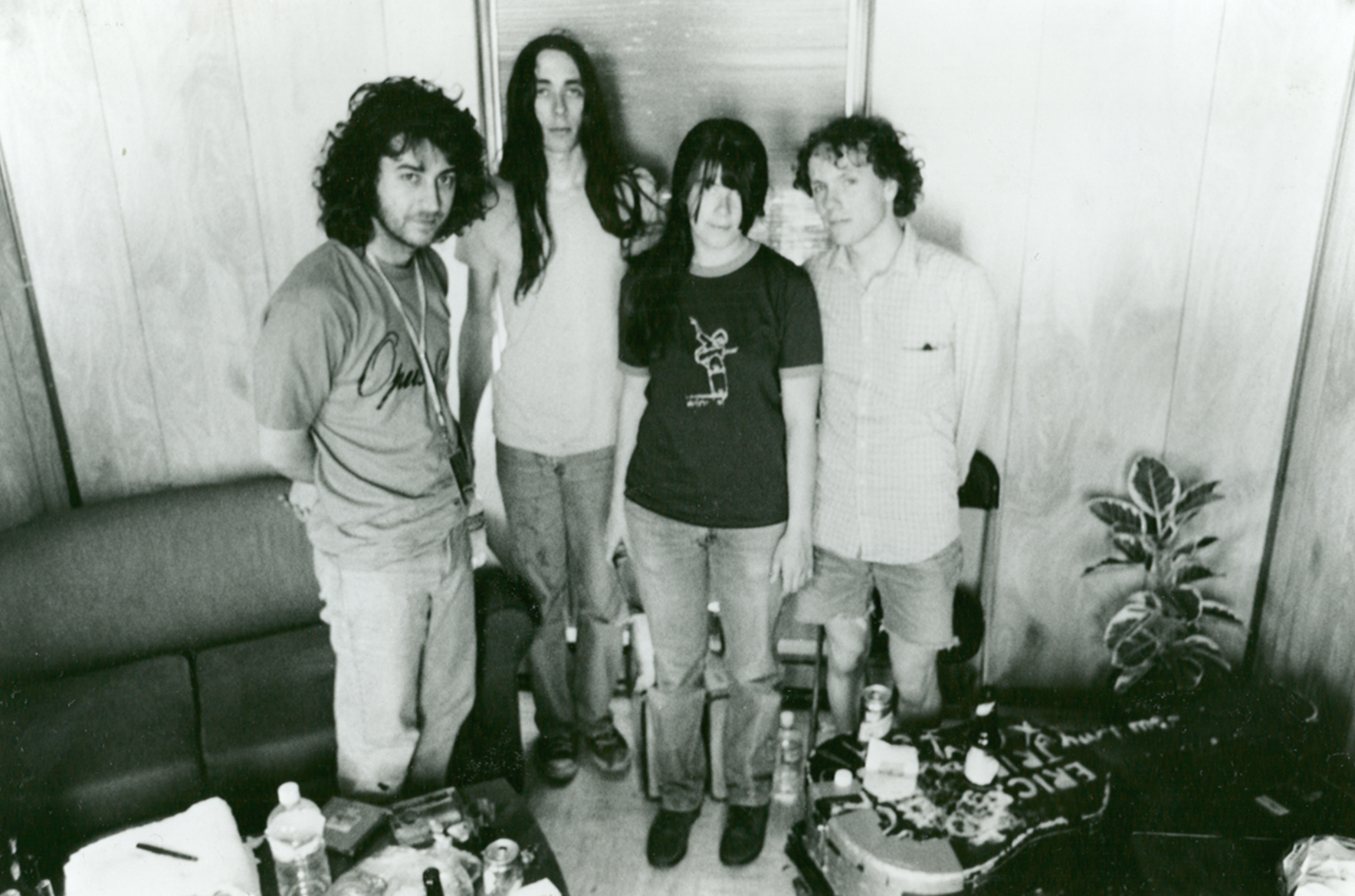At the beginning of Stars’ first album, Nightsongs, a female voice whispers lines from Baudelaire’s L’Invitation al Voyage that roughly translate to: “The deep sunsets surround the west/The canals, the city, entire/With blue-violet and gold/And the Earth grows cold/In an incandescent fire.” The final verse, most central to Stars’ collective worldview, dissolves into muted, heartbroken disco: “There, everything’s order and beauty/Calm, voluptuousness, and luxury.”
Either you’re a romantic, a decadent, or a modernist; either you enjoy that sentimentality or you’re not reading this anymore. Stars’ two albums following their 2001 debut—2003’s Heart and last year’s Set Yourself on Fire (both on Arts & Crafts)—have enlarged their fan base to include unapologetic romantics from the increasingly middle-aged KEXP audiences (at least at the local shows) to emo teenagers all grown up, now working for the pleasures of the weekend. Stars specialize in a unique angst some have called overblown, to which lead vocalist Torquil (Torq) Campbell responds, “Isn’t romanticism inherently overblown? That’s totally redundant.” He laughs while speaking from Vancouver, B.C., where he lives when not in the band’s Montreal home base.
Campbell and multi-instrumentalist Chris Seligman, both from Toronto, began Stars in Williamsburg, while sharing a loft with the Yeah Yeah Yeahs’ Nick Zinner and other creative types. Campbell and Seligman recorded Nightsongs as a duo. Their distinctively electronic songs— including a playful cover of the Smiths’ “This Charming Man”—were imbued with the pop drama that by Heart had developed in full swing, a product of the band finding its voice through a move back north and new guitarist/ vocalist Amy Millan and bassist/guitarist Evan Cranley, both of whom also contribute to Broken Social Scene. (Who doesn’t?) Buck 65’s Talkin’ Honky Blues beat out Heart for the 2004 Juno Award (the Canadian equivalent of the Grammys), but Stars’ not-quite-strong-enough album revved fans with at least one pop classic, the ecstatically lovelorn “Elevator Love Letter.”
Riding that feeling, Stars spent half a winter holed up in a Quebec cabin building Fire, and judging from the multiple tours that have followed—including a recent stint supporting Death Cab for Cutie—their process seems to have worked. “I’m a fan of semi-isolation when making a record,” says Campbell. “When you’re trying to tell a story or create an energy with a small group, the more you can control the environment around you and focus on each other, the more distinctive, forceful, and interesting the music you make will be.”
As a result, Fire is more complex—and thoroughly enjoyable—than its predecessors. The arrangements are more inventive, and the stories are personal enough to feel true, while populist enough to feel universal. Its success has provoked interesting and surprising reactions. Last year, writer Joel Hartse examined the album for The Other Journal: An Intersection of Theology and Culture, from a Christian perspective that delighted Campbell, who has no such leanings. Hartse wrote that a “sincere and exhausting love exudes from everything [Stars] put out” that’s in line with the basic tenet of Christianity. “I’d certainly thought that what I’m writing about is an old concept,” says Campbell. “It’s been espoused by every major religion in the history of the world—they seem to have forgotten it utterly—but at one point or another, the prophets were talking about love as the essence of life.” Hartse goes on to describe Stars’ metaphorical call to set yourself on fire as “a way of being fully awake and alive to the possibilities of life—like the way many in Evangelical Christianity describe devotion as being ‘on fire for the Lord.'”
That may be a long shot for the band, but with each album they do seem more wide-eyed, dissecting and celebrating moments as if each one has an almost divine significance. Campbell also works as an actor, which explains his desire to get to the core of an experience, however mundane. “I like narratives and characters—observing the dramas of other people’s lives,” he says. “Whether it’s having sex for the first time or watching your father die, everyone experiences those things and somehow they [still] fascinate us in the context of our own life. We’re all the stars of our own film, and I think that’s what art is for, to help mythologize your life—to make it something slightly bigger, more intense, and more beautiful.”
While a breakup (“Your Ex-Lover Is Dead”) is taken stoically and dire situations (“The Big Fight”) hang on a thread of hope, Stars don’t see everything with such rosy nostalgia and acceptance. Intensely negative feelings are magnified, too—on “He Lied About Death,” the first overt expression of political disdain in their body of work, they’re seething with hatred for GWB: “Keep watching your back/ Killers always have killers on their track.” The song supposes that Stars’ M.O. of appreciating life’s beauty is lost on fearmongers, but that it’s nothing new. “Seemingly from the beginning there’s been some bunch of guys who just couldn’t chill the fuck out and join the party,” Campbell says. In response, he proposes treating yourself and others as a work of art as the most effective form of activism. The “soft revolution” the band has enigmatically called for since its formation is an internal one, where the point isn’t winning but finding something higher to value. “Whether that’s religion or art, it’s beautiful, and that’s the needless charm of it,” says Campbell. “Pop music records these moments for posterity, and people keep listening because it seems true.”
Stars play the Showbox with the Elected at 8 p.m. Wed., Feb. 8. $13 adv./$15. All ages.








